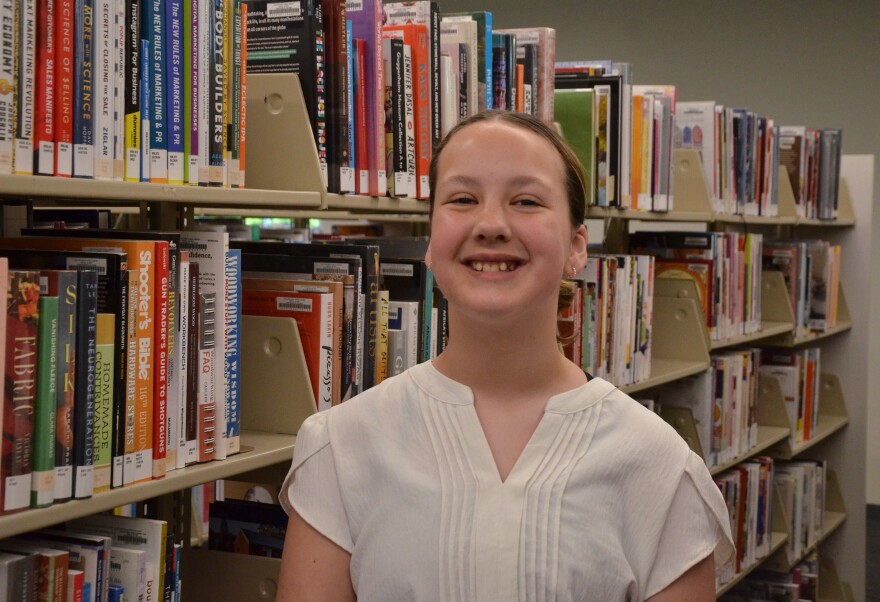Beckett Griffin, an 11-year-old from Lee's Summit, likes words that sound different than how they look — and she knows how to spell them.
That includes words like Ouagadougou, the capital city of Burkina Faso, and Oaxaca, a city in Mexico.
The fifth grader at Underwood Elementary is now one of 243 students competing in the Scripps National Spelling Bee this week in Washington, D.C.
“I'm really nervous, but there's a lot of excitement in there,” Beckett said.
Beckett first competed in her school’s spelling bee last year and made it to fourth place in the regional competition. She thought if she worked really hard this year, she could make it to the national level.
She did just that when she secured her spot in D.C. at the Mid-Continent Public Library Spelling Bee in March with the word “catalepsy,” a medical condition where a person’s body is stiff and stops moving.
“I was so excited, just elated, and I was just smiling a lot, and I was really happy,” Beckett said.

Since then, Beckett’s been studying how to spell different words for two to three hours each day, in between a plethora of hobbies — including volleyball, Girl Scouts, archery and choir. Her teachers and friends sometimes even give up their recess to help her prepare.
“Sometimes we like to just do it in the car or on road trips or even on the plane sometimes if we're going somewhere,” Beckett said. “We just find really creative times to work on spelling.”
Beckett’s leaned on a list of people to help her study ahead of the national competition, including her teachers, friends and even past competitors who live in the area. But her mom, Tanya Griffin, has also played a big role in helping her learn hundreds of words.
Griffin is a professor at Johnson County Community College in the college success department and works with students on their learning strategies and study skills. She said she’s applied those techniques to help her daughter learn words so she retains them long term.
She said Beckett didn’t learn best by just sitting and writing words out — she needed to experience the word in different ways. That includes hearing someone say it, saying the word out loud and writing or typing it.
“We took that multimodal approach. She also does much better when we are using them in sentences, making songs about the words, whatever it is that we can do to make it kind of fun,” Griffin said. “That's how it sticks in her brain better.”
Griffin said it also helps her daughter learn where words come from — if they have Greek or Latin roots or a Hawaiian origin, for example. Instead of just memorizing words, she said her daughter can use what she’s learned from one country’s words and use it for similar ones.

Beckett said some of the trickiest words come easily to her because of how they get stuck in her brain. But she said there are some hard ones, like one of her favorite words — “pneumonoultramicroscopicsilicovolcanoconiosis” — a name invented for a lung disease. The Oxford Dictionary said it’s the longest word in English.
But there’s more that Beckett’s learning than long words.
“I think my vocabulary has really expanded from it, but I also learned to just take my time, just take a breath and try to be calm,” Beckett said.
Griffin said she’s been reminding her daughter that just making it to nationals is a huge accomplishment, and whatever happens next is “icing on the cake.”
“The hard work is done. She's learned the words, and now it's kind of luck of the draw,” she said. “Whatever word you get is what you get, and hopefully you know it.”
On top of visiting D.C.'s monuments and museums, Beckett’s looking forward to making new friends and meeting new people from around the country. Because it's her first year at the national competition, her goal is making it to the second day.
“But sometimes, I think it would be awesome if I get to finals,” Beckett said.





